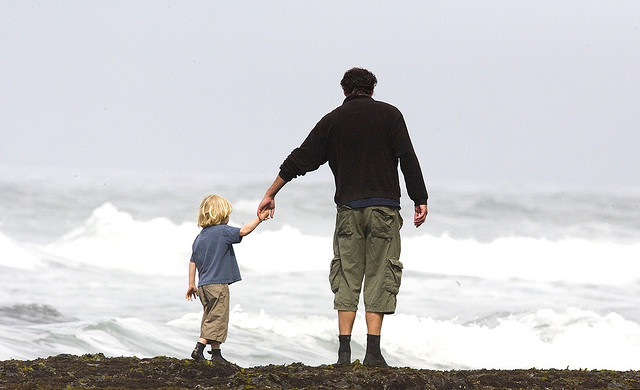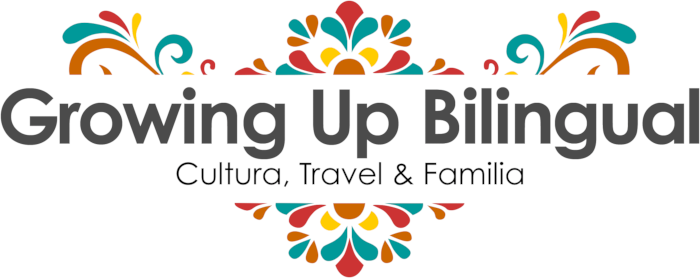Raising bilingual children as a non-native speaker of the language is an interesting endeavor. Fortunately, I have it better than some; my wife is a native speaker. It’s commonly understood that this is a huge benefit and, well, it is. While it is a huge benefit in the overall process, unique situations still exist for the one actually speaking the language; which would be me.

Unfortunately there is more to raising children than just insuring they receive some semblance of the language you wish to pass down to them. I have appealed this, but alas to no avail. You actually have to feed them, dress them, hang out with them, and, to put it succinctly, make them the center of your world. When raising bilingual children, the majority of the duties are exactly the same; only in another language. I have hopes of making this a series of posts detailing the unique challenges we face as non-native bilingual speakers raising children in our target language.
The problem for the non-native is that a lot of these activities aren’t readily studied prior to having children. I studied Spanish in high school, college, and then learned the other 95% on my own after meeting my wife; the formal foreign language study was less than optimal. In your own language, you have some exposure to people interacting with babies as you live your life; cousins, nieces and nephews, friends younger siblings, or random people in the supermarket. This is a learning process when raising bilingual children in a non-native language. In our “own” language, a person soaks up that information and forms some idea about what to say to babies. In a foreign language, you may never have seen another person say one word to a baby. Being a bilingual daddy in a foreign language can be tricky. Here are some of the specific challenges I face on top of the fact that fathers communication skills are already fairly questionable!
Raising Bilingual Children in a Non-Native Language Challenge #1
Regardless of which parenting techniques for bilingual children you’re using as a non-native speaker, one thing stands in your way: vocabulary. You don’t have the vocabulary for a lot of things. If you learned how to say any of the following words in a college foreign language class, please comment below. I will go take that class.
Diaper, baby powder, crib, jumper, walker, pack-and-play, stroller, car seat, crawling, babbling, etc.
The list of baby terms one must learn is extensive and must be assimilated into your vocabulary. This isn’t overly difficult, obviously, however it’s a process. You’re goal isn’t to learn vocabulary after your child is born and you’re in the hospital; it’s to connect with your child. This is the point: when your raising children in a non-native language you are always learning.
It doesn’t matter if it’s the happiest day of your life, the saddest, the most frustrating, or just any another day; you’re learning and you’re working. Most of the time it’s a great thing, sometimes it’s just plain annoying. However, after a while you get the kinks worked out and are sailing on smooth water until the next milestone arises and you have all new vocabulary to learn.
While it isn’t always a cakewalk, it’s definitely a worthwhile endeavor. Keep at it! Sacrifice today gives way to success tomorrow. If that’s a quote, I don’t’ know who said it, because I just made it up. But it’s true. In all things in life, especially in raising bilingual children; or really, children at all. The benefits of being bilingual are many, and being able to be the first one in your family to raise a child in another language is an honor.
Stay tuned for challenge #2 coming soon!
Jeffrey Nelson from LivingBilingual
- Title: The Bilingual Advantage: How Speaking Two Languages Boosts Career and Business Opportunities - August 28, 2013
- What Does It Mean To Speak More Than One Language? - August 14, 2013
- 5 Ways To Keep Your Little Language Learners Motivated! - July 25, 2013



Loved the first installment of this series – can’t wait for the next one!
Thanks! Hopefully the second one will be on shortly. Check back often or check me out over on my blog!
Jeff
It is not easy but yu have to keep trying. It is my day to day challenge.
Definitely! We are in it for the long haul… it’s definitely an interesting process! Are you raising a child in a non-native language?
Jeff
It´s a very hard work, and I love that you take it as an honor. I can´t wait to read challenge #2.
Thank you!
Thank you Adriana!
It is hard work, but keeping after it makes it easier as time goes by. My wife is a big help, that’s for sure! Thanks for the comment. I’m excited to write part 2 as well!
I appreciate your kind words,
Jeff
great post.. I am raising bilingual kids and it is a hard work that will pay off
Thanks for the encouragement! Good luck to you. I’m excited to write post #2. Hopefully we can keep in touch!
Jeff
great work!! atleast you are trying and making an effort!!! congrats and keep goin! ^.^ it gets easier with time and practice!
Thanks! It definitely does get easier with practice. Every day I learn new words, phrases, and ways to communicate with the little guy. Now that his activities are expanding, so is my vocabulary! 🙂
Jeff
Raising a child by itself is a challenge nonetheless trying to teach him/her about our latino traditions and our language is a country different from our, great article!
Thanks for the encouragement! Stay tuned… 🙂
Great and interesting post! Congrats! I am raising bilingual kid and It’s a hard job but the reward is the best! I can’t wait for the next one!
¡HAPPY DAY!ॐ
http://mamaholistica.com
I agree! The rewards are going to be fantastic. Keep going and good job!
I’m trying to raise my kids bilingual. It is a hard work for me but for them is just so natural that I was surprise!
Yeah, it doesn’t seem fair does it? We struggle, and work, and they just spontaneously do it! Haha. Oh well, good for them!
Jeff
Very nice post, I can’t wait to read the second part of the challenge, I’m also raising my kids bilingual. Keep the good work!
Both my husband and I are non-native speakers committed to only speaking Spanish with our 14 month son. Connecting with him has felt natural since we’ve been doing it in Spanish since birth but sometimes I fear that we are not able to expose him to as rich of descriptions for things or we’re uncertain how to say a lot of stuff. It’s frustrating and feels a little scary but he only has a few words now and they are half in English and half in Spanish. He understands many of the things I ask him to do in Spanish. Those things probably would not feel so incredible to me in English but for some reason I keep thinking day in and day out…can we really do this? But so far we’re doing it? Lot’s more vocab to learn…that’s for sure! I just hope we can stay ahead of him.